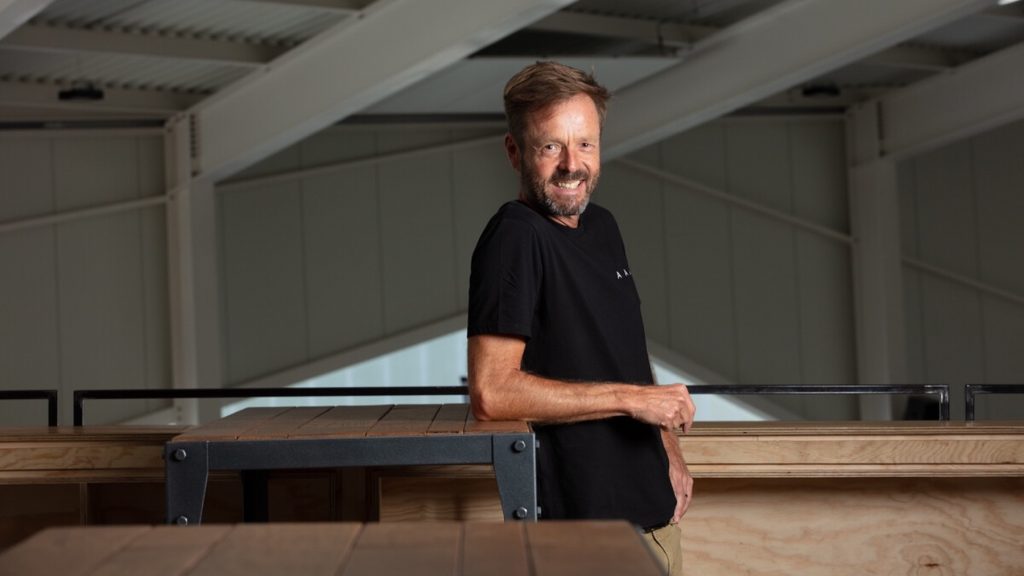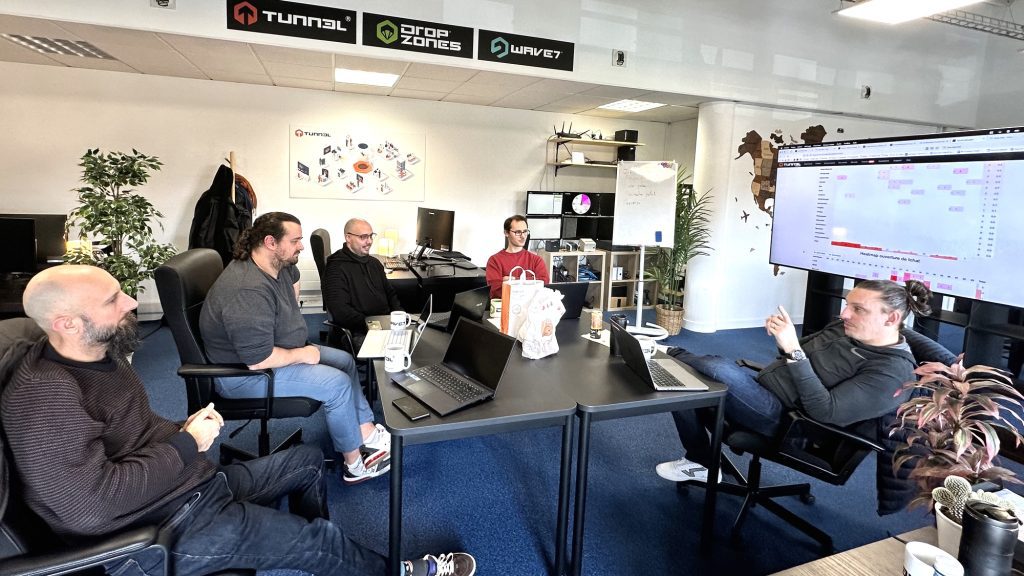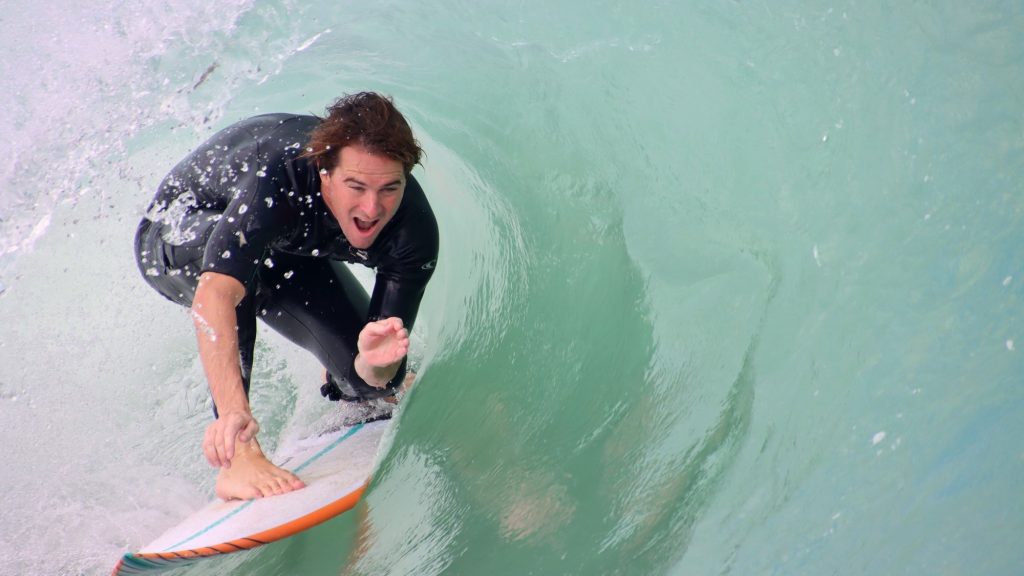Do you need a management company to run your wave pool facility?

If you’ve had any experience with management teams, your feelings about them will fall into one of two camps; the first is that they’re a great way to overcomplicate almost any decision-making process. Or alternatively, they’re comprised of professionally honed teams of crack crisis managers who can solve everything from Mars mission logistics to modern-day social media hysteria. Or, just possibly, somewhere in between. But adding a giant pool of moving water and customers of varying skill levels and expectations to the mix can really become complicated.
While facilities like golf courses, ski resorts, theme/water parks have been around for decades and have management teams aplenty catering to them, the wave pool scene is the newer kid on the block.
“Unlike more established industries, the knowledge base for efficiently operating wave parks is still relatively new. This makes the involvement of an experienced management team crucial from the earliest stages of the project, ensuring that the business is positioned to run smoothly from day one,” said Olivier Barre, Owner and CEO of management companies Tunn3l, and Wave7.
Hiring a specialized management team can be expensive, particularly for smaller facilities that may need more money for additional staff. Ongoing Costs such as salaries and training can add up, potentially impacting the facility’s profitability. But if there’s not a management team in place, pools can potentially miss out on revenue or perhaps have a more streamlined and cost-effective system of operations.

Also worth considering is the growing variety of pools, from stand-alone facilities, such as the two URBNSURFs, Alaia Bay, and The Wave, to tubs with private memberships, as is the case in Brazil. All of these operations require different methods of management.
A definite plus of hiring a management team for facility owners is the freeing up of the most valuable of resources: time.
“The management company handles the day-to-day operations, which releases time and resources from the owner/developer so they can focus on their other business priorities, i.e. bigger-picture strategy decisions, new developments, or new investments,” said Cate Thero, Partner at Surf Park Management.
Cate also points out that many developers and investors prefer to entrust time-sensitive issues, like employee concerns, equipment malfunctions, or social media content, to their management company partner rather than being burdened with the need for 24/7 immediate responses.
Cate Thero and biz partner Skip Taylor worked extensively on the Lineup at Wai Kai on Oahu which features the world’s largest deepwater standing wave.
Getting this methodology in place, ideally from the project’s planning stages, is a smart play.
“From our experience, developers are not operators and do not always consider key operational elements in the construction planning,” added Cate.
A management company can offer critical operational insights during the development phase to ensure that the venue’s design supports efficient and effective operations and that revenue projections align with the facility’s layout. This includes run-of-the-mill business considerations such as administrative offices, technology integrations, kitchen size, storage, and employee parking, through to more specific needs like wetsuit drying facilities, areas for board repairs, and pre-surf space for group lessons. Incorporating these elements from the outset is crucial, as retrofitting them after the venue opens can be both costly and disruptive.
“Just as the surf wave technology evolved, so too does the business of surf parks continue to grow and evolve,” said Jessica Mahoney, former COO of Surf Park Central and Owner of BLUE WATER park consultants. She continued, “It’s becoming increasingly clear that the core customer base extends beyond expert surfers to include families and kids.”

Wave Pool management companies also need to look beyond the surf component of the development and integrate other revenue-generating concepts. This can also include potentially bigger real estate models combining hospitality, residential, or commercial projects—which in turn may be public or private. Being able to call upon a broad range of skills to handle all business options is paramount.
Some facility owners may regard such oversight as a double-edged sword. Bringing in an external management team can lead to a loss of direct control over day-to-day operations, which might need to align with the owner’s vision or business strategy. Additionally, the facility may become overly dependent on the management team’s expertise, making it easier to transition to in-house management if needed.
Wave pools differ from the requirements found in traditional surfing-as-an-experience businesses.
“When you invest millions into a park and expect up to 1000 visitors daily, you can’t run it like a regular surf school,” said Bruno Gujer, CEO and founder of Consul8. “We call it a smile factory, but to generate smiles, you need to offer a great service and ensure high levels of safety. Since there’s no book yet to guide you to best practices, you’d better get help from experts. They’ll help you negotiate with partners, make sure you recruit the right team, or get all the details you need for your equipment choice.”

Delivering the best customer experience possible for pros and beginners is only possible with a great facility, an excellent booking system, and consistently smooth operations.
“This is not something you can test a couple of times—you need to nail it for the opening day, and this requires experience,” stated Bruno.
One of the most compelling reasons to hire a management team is the potential for substantial cost savings and operational efficiency from the very beginning. Wave7’s CEO and owner, Olivier Barre, states that the involvement of their team from the early stages of development at Alaia Bay in Switzerland played a critical role in the park’s exceptional start.
“By working with the team well before opening day, we were able to streamline operations, optimize staffing, and design a customer journey that contributed to both high customer satisfaction and strong financial performance from day one,” he said. Having a seamless operational start can help owners achieve a faster return on investment.”
Of course, there is always the option to run everything in-house. Mike Schwaab, General Manager of Waco Surf, and their ownership team have a strong background in small business ownership and management. And it shows at Waco Surf.
Regarding paying for a management team, you’ve two main options: a flat, agreed-upon fee or profit sharing.
“We believe that a flat fee is always the best option. This approach offers clear advantages, particularly in the context of wave parks where there is often uncertainty about whether the management team will deliver tangible results,” said Olivier. Also pointing out that wave park teams, especially those new to the business, “may fall prey to the Dunning-Kruger effect, where they might overestimate their own knowledge and abilities in managing the complexities of a wave park.”
A flat fee structure offers operators clear upfront costs, ensuring a predictable and manageable expense model. This predictability is a plus for budgeting, particularly during the early stages of developing a wave park.
Wave7 advocates the idea that the management team’s primary value lies in their involvement before the wave pool opens, ensuring everything is set up for a smooth and successful start. Once the park is operational, the need for ongoing external management diminishes, provided the suitable systems and processes are in place.
“The start-up process is a very intense period with thousands and thousands of tasks to be managed before opening and requires more resources to complete than would typically be on-staff in a pre-opening period at a surf park,” said Surf Park Management partner Cate Thero. Further stating that, “the management team can augment the start-up resources with their ‘Launch Team’ or have access to seasoned professionals.”

While no management companies can share actual figures on fees, costs, or savings incurred due to client agreements, Surf Park Management was happy to provide three real-world examples of how they say they’ve saved some wave pools from making critical errors.
- A wave pool development group had projected millions of dollars in food and beverage revenues but didn’t have a kitchen in the design plans. It wanted to rely solely on food trucks and didn’t consider the lucrative group F&B business. SPM redesigned the venue, resulting in F&B revenues exceeding surf revenues.
- We worked with a wave pool developer who projected revenues from wet suit rentals, but there was no place to store, wash, or dry the wet suits. Design input and space were allocated to ensure this could be achieved.
- A wave pool with projections for large-scale operations with retail, F&B, rentals, retail, and guest services had only one small office on the plans for the management staff. SPM’s input saved future costs related to leasing satellite offices or building an expensive addition.
Management professionals can assist in solving many issues, from planning to start-up so that wave pools can recoup their massive expenditures. Of course, there’s always the option for a commercial wave tub to retain a management team full-time to allow them to focus on other ventures. Teams can also be hired for a set time, with management shifting to an in-house team later on.
We came into the [Waco Surf] acquisition with a concise picture of what would be needed to create the culture, experience, and general vibe that we were envisioning for this project . . taking it in-house made the most sense for us.
Mike Schwaab
Of course, there is always the option to run everything in-house. Mike Schwaab, General Manager of Waco Surf, and their ownership team have a strong background in small business ownership and management.
“We came into the [Waco Surf] acquisition with a concise picture of what would be needed to create the culture, experience, and general vibe that we were envisioning for this project . . taking it in-house made the most sense for us,” said Mike.
However, he readily acknowledges that this decision goes hand-in-hand with long hours and a ton of legwork.
“Don’t let me downplay the cons, though, as it isn’t for the faint of heart- choosing this direction takes hours… and hours… and hours… to get right,” he said. “For the first few years, my wife Amy and I were here basically every day, sun-up to sun-down, defining, implementing, and refining the culture, brand, and processes necessary to reach our goals.”

From this process, Mike has been able to develop new team leaders who understand Waco Surf’s vision and goals, taking a lot of weight off his shoulders.
“The team here is unbelievable,” he said. “All in all, I am beyond stoked and proud of our decision and what we’ve been able to build here.”
As wave pools proliferate and the space shares success stories, notes causes of failure and continues to define itself, the question to park developers will remain, “can we do it ourselves or do we need outside help.”
Related Coverage
